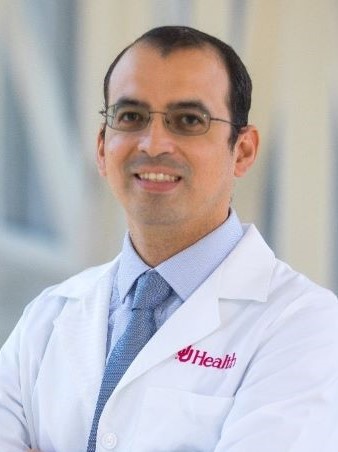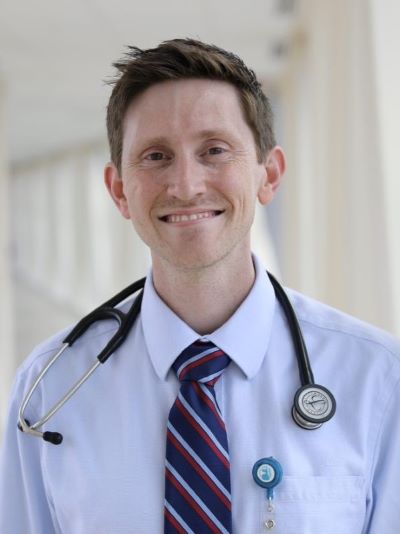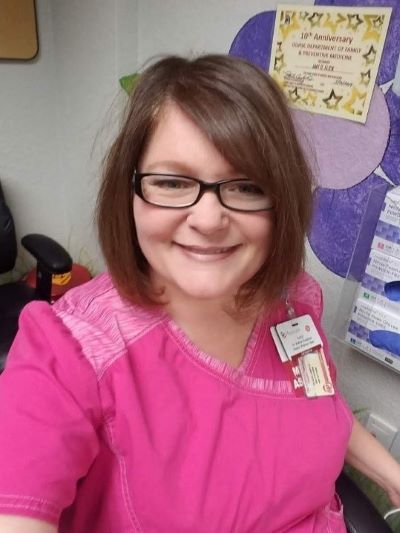According to the World Health Organization, more than 1 billion people are on the move globally. Of this 281 million are migrants and 84 have been forcibly displaced of which 35 million are children and 1 million were born in a refugee life. This vulnerable population often face worse health outcomes due to a variety of reasons related to poverty, limited access to health, language and cultural differences, discrimination, exploitation, and poor understanding of policies and laws.
More than 100,000 of Oklahoma City residents, or 8% of the population, is foreign born. Oklahoma is home to a large Vietnamese and Burmese community as well a growing Marshallese community. More recently, Oklahoma has seen an increasing number of incoming asylee seekers from West Africa, Haiti, and Cuba.
The Section of Infectious Diseases in partnership with the Family Medicine Department established a refugee clinic in 2019 with the goal of improving the health of refugees, asylees and parolees. In partnership with Catholic Charities and other community health clinics, we have provided care to hundreds of families from every region of the globe. Oklahoma has for example, resettled over 1,800 Afghan refugees between October 2021 and February, being ranked 3rd in the nation.
The clinic offers our staff and students a framework for multidisciplinary training in cross-cultural care, human rights, health disparities, and advocacy in order to train globally minded and competent healthcare providers. Trainees become familiar with the refugee continuum of care with emphasis on the pre-departure and post-arrival medical screening and treatment of U.S.-bound refugees. They also develop expertise in immunizations and in implementation of best practices in cultural competency. Trainees are exposed to tropical and neglected diseases uncommonly seen in the United States (e.g. leishmaniasis, Chagas disease, geohelminths, Hansen’s disease, etc.).
The University of Oklahoma Health Sciences is also a surveillance site of the prestigious GeoSentinel. The network consists of 68 clinics around the globe dedicated to care of travelers and migrants, surveillance, and research of travel-related illness.
Mission
In keeping with OU Medicine’s mission “Leading Health Care – in patient care, education, and research…,” the University of Oklahoma Center for Travel and Immigrant Health seeks to provide travelers and migrants compassionate and patient-centered care. In this context, the clinic acts as a resource for the economic, health, educational, and social contexts of integration into society. Through education and research, the clinic fosters the fundamental human rights principles of dignity, fairness, equality, respect, and autonomy.
Vision
Our vision is in par with the World Health Organization definition of health - “Health is a state of complete physical, mental and social well-being and not merely the absence of disease or infirmity. The enjoyment of the highest attainable standard of health is one of the fundamental rights of every human being without distinction of race, religion, political belief, economic or social condition.”
Goals
To foster the development of healthcare professional with global mindset
To screen, identify and treat communicable and non-communicable diseases based on evidence-based medicine for arriving immigrants and refugees.
To expeditiously and appropriately evaluate travel-related illnesses in the state
To welcome different cultures to modern medicine practices, with an emphasis on education, health maintenance, and routine screening.
Medical Leads
Nels on Iván Agudelo Higuita M.D., DTM&H, CTH®
on Iván Agudelo Higuita M.D., DTM&H, CTH®
Dr. Agudelo graduated from the National Autonomous University of Honduras. He completed his Internal Medicine Residency and Infectious Diseases Fellowship in The University of Oklahoma Health Sciences Center. He is currently the program director of the Infectious Diseases Fellowship Training Program and the Principal Site Investigator for the Global TravEpi Network and GeoSentinel.
He has special interest in reducing health inequalities in structurally vulnerable populations and in the education of the future generation of healthcare professionals as global citizens.
S helby Beamon PA-C
helby Beamon PA-C
Shelby Beamon PA-C graduated in 2009 from Harding University in Searcy Arkansas with an MS degrees in Physician Assistant Studies. After graduating, he moved to OKC where he worked as a PA at an urgent care clinic within a Hispanic supermarket. In 2013, he began working at the OUP Community Health Clinics located inside the Oklahoma City County Health Departments, with care focusing on chronic disease management for the uninsured. It is here with the Community Health Clinics he first started partnering with Catholic Charities working with refugees and asylees. Inspired by the nonprofit organization Partners in Health, his professional mission is “both medical and moral. It is based on solidarity, rather than charity alone.”
Medical Support Staff
 Amy Flick, Sr. RMA/Vaccine Coordinator
Amy Flick, Sr. RMA/Vaccine Coordinator
I have been in the pediatric Immunization Station since 2008. I vaccinate all of the clinic patients who are ages 18 and under. When I’m not at work, I also serve on the Board of Directors for the Central Oklahoma Immunization Coalition. I love learning about our refugee patients’ culture and watching the children grow.